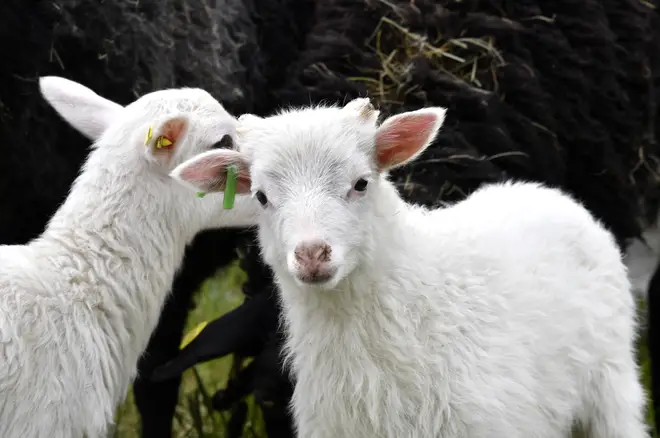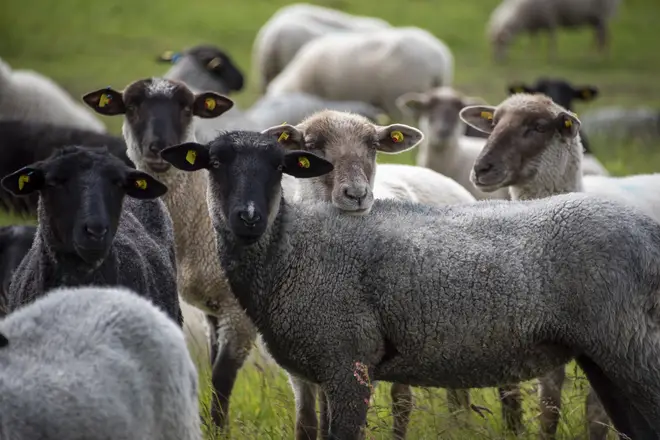
Tom Swarbrick 4pm - 6pm
4 August 2020, 06:09

Sheep rustling rose at the peak of the coronavirus pandemic and could lead to a threat to human health if the meat is sold on the black market, a report has claimed.
April saw a spike in reports of livestock being stolen according to data released by NFU Mutual.
The insurer said the number of animals stolen increased by almost 15 per cent year-on-year in April.
The company, which insures around three-quarters of the UK's farmers, puts the cost of livestock theft at £3m.
The report said rural crime rose across the UK last year as criminal gangs targeted expensive tractors, quad bikes and large numbers of livestock.
Farmers also experienced an "influx" of walkers on their land while reports of dog attacks on farm animals rose during the outbreak, the insurer said.
It also warned of fears that rural crime could escalate as the economic impact of the crisis hits.
The report said: "Well-organised gangs taking large numbers of sheep, which are thought to enter the food chain illegally, are driving the increase.
"A spate of sheep being slaughtered and butchered in farmers' fields also contributed to the rise."

Rebecca Davidson, from NFU Mutual, said: "Ten years ago, we'd rarely get more than a dozen sheep stolen in one go.
"There are fears this meat could be entering the black market, so it has a huge impact on our farmers who work to very high welfare standards.
"The animals they've reared have gone, it has an impact on breeding programmes, the welfare of the animals themselves.
"Also we're worried about the threat to human health as well because these animals could be slaughtered in unhygienic conditions."
Another "major concern" is the theft of tractor GPS equipment typically costing between £8,000 and £10,000, NFU Mutual said, adding that this had become "a highly prized item on the shopping lists of rural thieves, particularly during the Covid-19 lockdown where smaller, high-value items appear to have been targeted to meet demand overseas".
The news comes as the company published an annual report indicating the cost of rural crime rose almost 9 per cent in 12 months to £54 million last year - its highest level for eight years.
The biggest percentage increase was seen in Scotland (44 per cent), although its rural crime cost remains below the UK average.
Julia Mulligan, the police and crime commissioner for North Yorkshire and chairwoman of the National Rural Crime Network, said: "It is alarming to see that this is the highest recorded cost since 2013 and highlights that crime continues to be a significant and growing challenge for our rural communities and businesses.
"While this report has stark numbers on the cost of crime, this is only the tip of the iceberg as we know from our research that many crimes in rural communities go unreported - especially by business owners, because they don't feel the offence will be taken seriously or anything will be done."